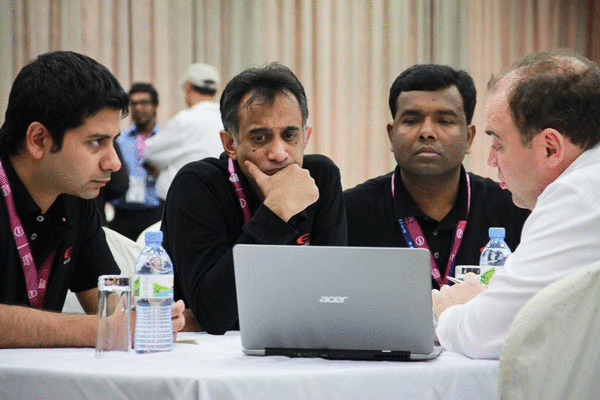
Opening up access to finance for SMEs
Financial constraints continue to hinder SMEs from reaching international markets
Policymakers in developing economies need to devise sustainable models for job growth, which means supporting small and medium-sized enterprises (SMEs), said experts from the International Trade Centre (ITC) at a conference of the Committee for Economic and Commercial Cooperation of the Organization of Islamic Cooperation (COMCEC) in Ankara, Turkey on 30 October 2013. The findings of the conference, which focused on how to enhance Access to Finance to SMEs in developing Islamic countries, have been presented to the Ministerial meeting of COMCEC, which took place on 18-21 November 2013 in Istanbul, Turkey.
At the meeting, Torek Farhadi, Senior Adviser, Access to Finance, ITC, urged policymakers to support the growth of SMEs: ‘SMEs create jobs and, because of such, policymakers in developing countries should foster SME growth as part of their development policies. Banks should also be aware of the benefits of supporting SMEs. The state should have specific incentive policies for the financial sector to take risks in certain sectors which are deemed priority for job growth.’
Mr. Farhadi said that in Islamic countries such as Egypt, Nigeria, Indonesia, Yemen, Bangladesh and Pakistan, population is expected to nearly double over the next 70 years, meaning that creating jobs needs to be a priority for policymakers in the region. SMEs are an important part of job growth but, according to the World Economic Forum’s Global Competitiveness Report 2012-2013, access to finance is the second or third biggest constraint to SME growth in almost all developing countries.
ITC’s Access to Finance for SMEs Programme was set up to assist SMEs to obtain finance. It helps SMEs to improve their skills in financial management and to develop business plans. It works alongside trade support institutions and local financial management counsellors, and encourages financial institutions to support SMEs and offer them favourable lending conditions.
Mr. Farhadi told the expert working group that the Internet has potentially opened up international markets, which should be available to all SMEs that produce quality products. However, SMEs often lack the skills needed to trade on a global basis and need technical support in safeguarding their interests, accessing finance and trade facilitation tools.
ITC has studied policies in Canada, France, Germany and the UK over the past two decades that enable the injection of finance into SMEs. The study found that most policy-driven programmes are designed to ensure that they create new economic activity in geographic areas and economic sectors that are considered to be a priority. To support innovation, special provisions for research and development and innovation have been enacted into laws.
ITC will draw on this study and lessons learned to encourage SME growth in developing countries. ITC already assists entrepreneurs to prepare better business plans and to help them to better understand credit products, to make them more appealing to lenders. Well prepared SMEs can then be matched with banks that have a better knowledge of their business and their export potential.
ITC’s Access to Finance programme also aims to help SMEs access finance from non-banking sources, such as “angel” investors. The programme will provide a link between SMEs and financiers, be they banks or “angel” investors, enabling a greater understanding and wider opportunities for those seeking finance and those who can offer it.



